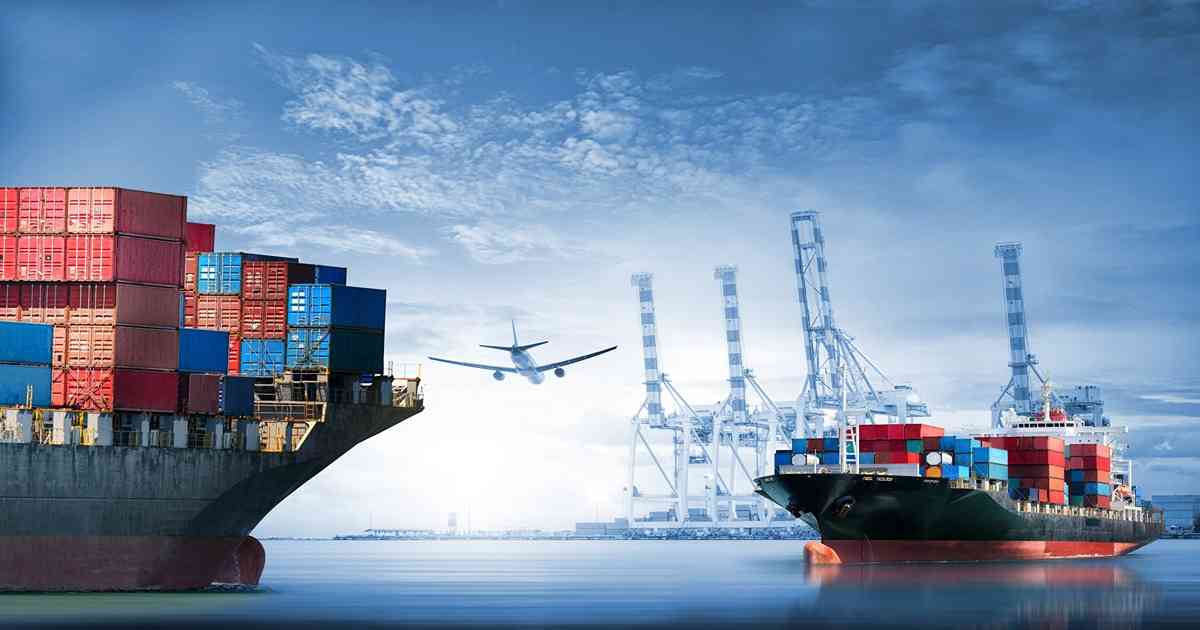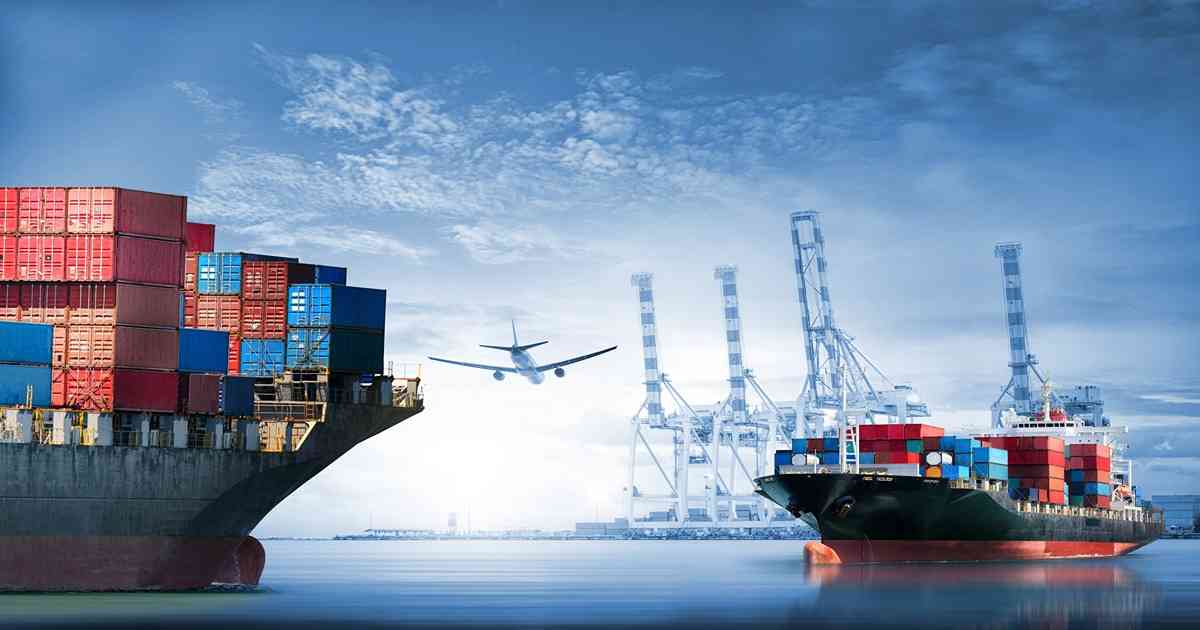
Warehousing and Distribution
Article | June 16, 2023
The pandemic has had a significant impact on the logistics and shipping sectors, forcing businesses to rethink their supply chain tactics. Fresh COVID- Supply systems around the world are already under threat from 19 outbreaks. China's measures to stop the spread of Omicron by shutting down shipping terminals caused a lockjam of cargo ships. A similar scenario was seen in US and European ports that were congested as a result of a significant increase in cargo.
Additionally, these difficulties have been made worse by the tremendous staff shortage in the US. Although there are more job openings than before, the total strength of the workforce has taken a hit. A report by WNS and Corinium Intelligence reveals that over 60% of shipping and logistics organizations have amped up the automation aspect of their operations by two years. So, what does that mean for the future? In this article, we will talk about the four most promising trends that will define the shipping and logistics industry in 2025.
Live Monitoring Powered by Big Data and the Digital Twin Technologies
Big data is simplifying the ability to be agile, efficient, and cost-effective, and connectivity with other technologies and elements of the infrastructure is driving a real-time view of the supply chain further. Other innovations such as drones and self-driving trucks will contribute to this real-time update and processing of massive amounts of data. In addition, tracking software for freight will provide even greater visibility to customers and enterprises.
Automated Planning Through Collaboration Between Humans and Machines
Artificial intelligence (AI)AI in shipping and logistics has grown exponentially in areas of planning. AI applications are used to alter transportation and route planning. According to Gartner, by 2030, AI augmentation, will surpass other forms of AI application and account for 44% of all AI-powered value. Predictive alerting is a prominent example of augmented intelligence. Smart alerts based on predictive analytics can be used by logistics professionals to carry out a variety of crucial tasks, such as estimating truck arrival times, anticipating equipment maintenance and product damage, and organizing for a spike in demand.
Hyper-local Supply Chains
Enterprise will downsize and bring their supply chains onshore over the course of the next few years, ushering in the next generation of hyper-local logistics. The two forces driving this transition are the need to stay agile and resilient to counter disruption and meet challenging customer demands for same-day delivery. The global same-day delivery market is estimated to reach a value of USD 20.36 billion by the year 2027. This will cultivate a hyper-local service to meet the growing demand.
Sustainability
An emphasis on sustainability will be the highlight of the shipping and logistics industry. Enhanced connectivity will enable enterprises to optimize their human as well as robotic resources.
Future Forward
The shipping and logistics industry has been forced to accelerate their digital adoption and increase their resilience due to the uncertainty in the past couple of years. Establishing real-time visibility, leveraging human-machine collaboration, adopting hyper-local logistics, and improving sustainability are all ways that businesses are preparing for the future.
Read More

Management
Article | June 21, 2023
Maintain a competitive advantage by effectively managing supply chain. Discover the potential opportunities and enhance the career in logistics with warehousing and distribution certificates.
The rapidly changing and fiercely competitive business landscape necessitates that professionals must go an extra mile to maintain a leading edge and propel their careers forward. Taking the initiative to pursue warehousing and logistics certifications can significantly boost your career. By obtaining a recognized designation, you demonstrate a steadfast dedication to your profession, enhancing your appeal to potential employers. Furthermore, earning a respected certification can open doors to advancement opportunities and increase making potential within your current organization. Moreover, pursuing ongoing education offers rewards, keeping you engaged and ensuring you remain at the forefront of industry developments.
1. Supply Chain Warehousing Certificate
Supply Chain Warehousing Certificate is a comprehensive program for individuals seeking expertise in warehousing and logistics. Developed by ASCM and Prologis, it covers essential topics such as inventory management, packaging, shipping, and sustainability in logistics. This self-paced course offers flexibility and can be accessed on mobile devices. Earning one of the exclusive warehousing and distribution certifications demonstrates your knowledge and expertise in managing inventory and helps you stand out in the competitive job market. Employers will recognize your ability to handle shipping processes, improve order fulfilment, and make informed transportation decisions.
2. SAP Extended Warehouse Management Training
Enhance your expertise in warehousing management with this top-tier online certification course. Gain in-depth knowledge of extended warehouse management, including warehousing structures, expert data, and warehouse organization. This warehousing and distribution course includes techniques for processing received and shipping goods, slotting, replenishment methods, and physical inventory. Delivered through video and text-based modules, it provides comprehensive warehousing and distribution center operations training. In addition, this course will expand your career opportunities and help you excel in the dynamic field of warehousing management.
3. Storage and Distribution Certification
Storage and Distribution Certification is a complete course that addresses the critical need for supply chain safety and integrity in today's complex logistics landscape. This supply chain warehousing certificate is focused on distribution and is designed for warehousing, logistics, and supply chain management professionals. The program covers supply chain visibility, risk management, and optimizing physical-flow networks. There are no specific eligibility criteria for this course, making it accessible to a wide range of individuals seeking to enhance their skills and knowledge. By obtaining this one amongst many warehousing certifications in this course , you'll be equipped with the expertise to mitigate supply chain vulnerabilities, improve operational resilience, and meet the evolving demands of the modern marketplace.
4. Certified International Warehouse and Inventory Manager
The Certified International Warehouse & Inventory Manager certification offered by Blue Ocean Academy in Dubai and Abu Dhabi provides professionals with comprehensive training in warehouse management. Blue Ocean Academy, recognized as an industry leader in this field, offers the best warehouse and inventory management training courses. The Warehouse Management Certification Program focuses on the strategic role of warehousing within the broader context of supply chain management and logistics. Participants will gain knowledge and skills in the latest methods for storing and safeguarding high-value inventories and best practices for modern warehousing. The program also covers techniques to achieve accurate record-keeping and successful cycle counting, methods for conducting warehouse audits, and the operational and financial performance aspects of warehousing.
5. Warehouse Excellence Certification (WAREX)
Developed by the Institute of Supply Chain Management (IoSCM), Warehouse Excellence Certification (WAREX) helps to elevate your warehousing career. This logistics warehousing and distribution program offers a range of qualifications catering to professionals at various stages of their logistics, warehousing, and distribution journeys. WAREX covers a broad spectrum of skills and knowledge, from entry-level to strategic management positions. Whether you're new to the industry or a seasoned professional, this certification equips you with the expertise to optimize warehouse operations, enhance inventory management, and drive overall supply chain efficiency.
6. Six Sigma Certification in Warehousing: Overview & Career Options
Six Sigma Certification in warehousing is a specialized program that equips professionals with the tools and methodologies to optimize warehouse operations, eliminate defects, and achieve near-perfect efficiency levels of 99.997%. By applying Six Sigma processes, businesses can identify and solve warehouse problems, resulting in improved customer satisfaction, increased revenue, reduced errors, efficient inventory management, and enhanced overall profitability. With this warehouse certification program, you'll stand out in the job market with higher employability, salary potential, and opportunities with renowned companies like Amazon, Samsung, Boeing, FedEx, DHL, and UPS.
7. Certified International Warehouse & Inventory Manager
This certificate in warehousing management is specifically designed to equip professionals with the necessary skills and knowledge to excel in the dynamic world of warehouse operations. This program covers a wide range of essential topics, from strategic warehouse management to inventory optimization and sustainable practices. Participants will learn about warehouse design, storage techniques, materials handling, inventory control, performance measurement, warehouse management systems, risk management, and sustainability. This warehousing and logistics certification is ideal for warehouse managers, logistics professionals, supply chain executives, and individuals seeking to enhance their expertise in warehouse operations.
8. WHSEOPSCERT - Warehouse Operations Certificate
The Warehouse Operations Certificate program offers essential training to develop fundamental warehousing skills and gain certifications in material handling equipment. This program is crafted to enhance participants' employability within the warehousing and distribution industries. It covers various topics, including warehouse operations, supply chain fundamentals, order fulfillment, shipping concepts, and lift truck certification training. The courses provide a comprehensive understanding of warehouse functions, inventory management, storage procedures, supply chain principles, and problem-solving strategies. Upon completion, graduates will be equipped for entry-level positions such as Order Puller, Warehouse Technician, Logistics Analyst, and more.
9. JHSC Certification Part Two - Warehousing & Distribution
The JHSC Certification Part Two - Warehousing & Distribution is an essential training program designed to equip participants with the knowledge and skills to recognize and control hazards within their warehousing and distribution workplaces. After completing both Part One and Part Two training, this certification is the final step in becoming a certified member of a Joint Health and Safety Committee (JHSC). Aligned with the Ministry of Labour's JHSC Certification Training Program Standard, this interactive 2-day course strengthens participants' understanding of the RACE process (Recognition, Assessment, Control, and Evaluation) for all workplace hazards. Delivered by experienced health and safety experts familiar with the industry, this training covers sector-specific risks such as MSDs, slips and falls, motor vehicle incidents, unguarded machinery, unsafe material handling, and hazardous chemicals. Completing this certification ensures compliance with legal requirements, empowers individuals to make informed decisions regarding workplace safety, and enhances overall hazard management in the warehousing and distribution sector.
10. Warehouse Distribution, Continuing Education Workforce Certificate
Warehouse Distribution Continuing Education Workforce Certificate is a comprehensive training program to equip individuals with the necessary skills for higher-skilled, frontline material handling roles within the supply chain industry. Ideal for individuals seeking employment in various supply chain facilities, such as warehouses, distribution centers, and transporters, this program prepares students for different job positions, including forklift operators, logistics specialists, freight handlers, and customer support representatives. By completing this certificate, learners will not only gain essential knowledge in waste reduction, logistics security, and forklift safety, but they will also have the opportunity to obtain the Certified Logistics Associate (CLA) credential from the Manufacturing Skill Standards Council (MSSC) and other relevant certificates. This certification provides a concrete foundation for entry-level careers in the logistics field and offers individuals a competitive edge in the job market.
Conclusion
Logistics and supply chain management professionals thrive on the exhilarating pace of constant change. Each day brings fresh challenges, opportunities, and innovative tools that enhance tracking, analysis, forecasting, and more. By actively pursuing a logistics or supply chain certification and diligently fulfilling the required continuing education hours, ensure that you remain at the forefront of these exciting industry advancements. This commitment positions you to leverage the latest insights and technologies, allowing you to optimize and streamline your supply chains for maximum efficiency. As a result, you stay ahead of the curve and empower your organization to achieve peak performance and drive continued success. Embrace the transformative power of certifications and embark on a journey of growth and excellence in logistics and supply chain management.
Read More

Warehousing and Distribution
Article | June 27, 2023
Automated supply chain planning maximizes efficiency and helps achieve long-term success by addressing challenges, highlighting the benefits, and offering insights to optimize business performance.
Contents
1 Supply Chain Planning System Efficiency Maximization
2 Key Steps of Supply Chain Planning to Boost Efficiency
2.1 Implement Advanced Analytics Tools
2.2 Streamline Communication and Collaboration
2.3 Automate Processes
2.4 Consistency in Performance Improvement
3 Overcoming Major Challenges in the Process to Maximize Efficiency
3.1 Resistance to Change
3.2 Legacy Systems and Siloed Data
3.3 Inadequate Funding
4 Conclusion
1 Supply Chain Planning System Efficiency Maximization
To compete and succeed in an ongoing complex and dynamic global market, companies must maximize the efficiency of their supply chain planning systems, which help manage the flow of goods and services from suppliers to customers, optimize resources and information to meet customer demands and minimize costs and risks. An adequate supply chain planning system can increase customer satisfaction, profitability, agility, and risk management. Moreover, by reducing costs, increasing productivity, and enhancing responsiveness to market demands, maximizing efficiency can help businesses remain competitive. As a result, businesses can gain a substantial competitive edge and position the organization for long-term success by optimizing their supply chain planning systems.
2 Key Steps of Supply Chain Planning to Boost Efficiency
Businesses can significantly boost efficiency in their supply chain planning by implementing advanced analytics tools, streamlining communication and collaboration, automating processes, and ensuring consistency in performance improvement.
2.1 Implement Advanced Analytics Tools
Implementing advanced analytics in supply chain planning is key to improve supply chain efficiency. Advanced analytics tools, including demand forecasting, production planning and inventory management, can help organizations leverage large volumes of data to extract insights that enable better decision-making. The insights can be used to optimize production planning, reducing costs and increasing efficiency. In addition, it also enables businesses to detect and respond to supply chain disruptions on operations.
2.2 Streamline Communication and Collaboration
Managing and streamlining communication becomes essential for supply chain businesses, as it leads to greater agility and enables pipelines to adapt to changes in organizational structures. Leveraging cloud-based communication platforms, video conferencing, and collaboration tools enable real-time information sharing and collaboration across different teams and stakeholders. By enhancing communication and collaboration, businesses can better align their supply chain objectives, reduce communication gaps, and enhance decision-making.
2.3 Automate Processes
The integration of technologies such as order processing, inventory management, and shipment tracking under warehouse automation and logistics automation produces a vast amount of data, making it challenging for businesses to process data manually. To enhance efficiency, automating supply chain planning processes has become essential. Automating the process has eliminated multitasking, including managing goods flow, tracking road progress, and ensuring safe delivery, which was previously required in the manual process. By automating processes, supply chain management can be streamlined, leading to reduced lead times, minimized costs, and improved efficiency.
2.4 Consistency in Performance Improvement
Improving the supply chain is not a one-time fix, but a process that must be reviewed and optimized frequently. By implementing technology, businesses can continuously collect and analyze warehouse inventory management performance to identify areas for further efficiency gains and improved order accuracy. In addition, establishing a framework for continuous optimization involves regular performance reviews, feedback mechanisms, and benchmarking against industry best practices to help identify and address inefficiencies.
3 Overcoming Major Challenges in the Process to Maximize Efficiency
3.1 Resistance to Change
Supply chain planning systems are hindered by change resistance. Employees may resist change who are comfortable with the status quo and adopt new technologies and processes less often. Organizations need a comprehensive change management plan to address stakeholder engagement, communication, and training. Implementing a change management plan starts with identifying the key stakeholders and involving them in planning to gain their buy-in and support for the changes, implementing the process of the changes using different channels to reach all stakeholders and in addition, developing training programs to prepare employees for the changes and enable them to use new technologies and processes effectively.
3.2 Legacy Systems and Silos Data
Data silos and a lack of supply chain visibility are two problems that can arise when legacy systems and data are used. It also adds roadblocks in maximizing efficiency through supply chain planning software. Investing in older systems makes it challenging to gain a comprehensive view of the supply chain and informed decisions making. In addition, the systems are non-compatible with modern technology and data is stored in disconnected systems. With the help of an integrated system, all relevant information can be collected in one place, streamlining monitoring and decision-making. A data governance policy should be implemented to guarantee data quality and uniformity across all platforms. Data management, data storage, data sharing, regular monitoring and reporting on data quality are all essential components of this policy.
3.3 Inadequate Funding
Insufficient funding can affect supply chain planning system efficiency; with budget constraints, organizations may struggle to invest in new technologies, hire skilled workers, or improve processes. Thus, the supply chain planning system may become obsolete, increasing costs, lead times, and customer dissatisfaction. To overcome the challenge of inadequate funding in supply chain planning, organizations must prioritize funding and strategically allocate resources by identifying the areas that require the most investment. Exploring alternative funding sources, such as grants and partnerships, can supplement existing funding and enable organizations to invest in vital initiatives that may not have been possible with limited resources. In addition, cost-cutting measures, such as process optimization and automation, can help to stretch existing funds and boost productivity.
4 Conclusion
The supply chain planning system will continue to play a critical role in maximizing efficiency to revolutionize the supply chain professionals leverage emerging technologies such as AI, ML, and blockchain; understanding the process, identifying the challenges and overcoming them using the right strategies helps businesses in effective supply chain planning systems, gain a competitive advantage, improve supply chain performance and position themselves for long-term success. Furthermore, adopting a data-driven approach and a culture of continuous improvement in supply chain management planning can help organizations plan according to the future of supply chain and compete in the ever-changing global market.
Read More

Article | April 19, 2020
Innovations such as AI and automation have been tipped to kickstart the Fourth Revolution. While the technology is being widely adopted, it is constantly evolving. Therefore, there is uncertainty surrounding its overall impact, particularly on professional roles within the supply chain. Some fear that the technology will replace its human counterparts, while other experts suggest it will work in unison with humans, supporting them to focus on higher value opportunities. Amidst all of this uncertainty one thing is for certain: AI and automation will change how we operate.
Read More